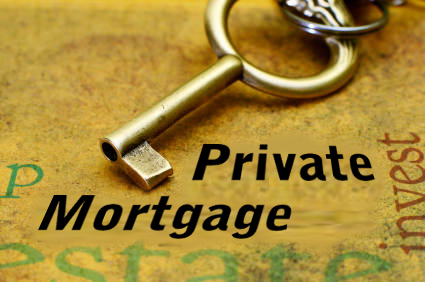How It Works: A Comprehensive Guide to Mortgage Lending for First-Time Buyers
Maneuvering the world of mortgage lending can be frightening for first-time purchasers. Comprehending the essential components like principal, rate of interest, and deposits is crucial. In addition, identifying the various sorts of mortgage and the application process can significantly impact one's experience. By exploring key variables that affect rate of interest, buyers might reveal beneficial understandings. What else should they think about before making such a significant monetary commitment?
Understanding Mortgage Essentials
When newbie customers go into the domain of homeownership, recognizing mortgage essentials becomes essential for making informed choices. A home loan is fundamentally a car loan secured by the property being acquired, allowing people to get a home without paying the complete price upfront. Customers should understand essential parts, including principal, passion, taxes, and insurance policy, typically summarized as PITI. The principal is the quantity obtained, while interest is the price of borrowing that amount, shared as a portion. Tax obligations and insurance are extra prices that can noticeably impact month-to-month payments. Purchasers must additionally consider the finance term, usually 15 or three decades, which affects repayment quantities and total interest paid. Comprehending credit history is essential, as they influence finance qualification and interest rates. Understanding these essential principles encourages new buyers to navigate the mortgage landscape confidently and make options that line up with their economic objectives.
Kinds Of Mortgage Loan
When considering mortgage options, first-time customers usually run into two key kinds: fixed-rate and adjustable-rate home mortgages. Fixed-rate home loans use stability with constant repayments over the finance's term, while variable-rate mortgages can provide reduced first rates that may fluctuate over time. Understanding these distinctions is essential for making an educated choice.
Fixed-Rate Home loans
Fixed-rate mortgages provide security and predictability for new homebuyers steering the complexities of home financing. With a fixed-rate mortgage, the rates of interest continues to be consistent throughout the finance term, normally ranging from 15 to 30 years. This regular rate allows customers to prepare their spending plans successfully, understanding that their monthly repayments will certainly not change. First-time customers gain from this structure as it removes uncertainty in lasting financial dedications. Furthermore, fixed-rate home mortgages usually include reduced initial prices compared to adjustable-rate choices, making them an attractive option for those wanting to develop home equity in time. On the whole, fixed-rate home loans offer an uncomplicated path to homeownership, perfect for individuals looking for long-term monetary protection.
Adjustable-Rate Mortgages
For novice property buyers looking for flexibility, variable-rate mortgages (ARMs) can supply an enticing alternative to fixed-rate finances. ARMs generally provide reduced first interest rates, making regular monthly repayments extra economical in the early years. These prices fluctuate after a preliminary fixed period, which can lead to boosted settlements over time. Consumers need to understand the index and margin that figure out future price modifications. Generally, ARMs have adjustment periods of one, 3, or 5 years, with periodic caps to limit exactly how much rates can increase at each adjustment. While ARMs can be advantageous for those intending to offer or re-finance prior to the rate adjusts, they likewise bring dangers if market conditions change considerably. Extensive research is vital for notified decision-making.
The Mortgage Application Process

Key Factors Influencing Rates Of Interest

Deposits and Closing Expenses
Comprehending deposits and shutting prices is important for newbie homebuyers, as these expenses considerably affect the general cost of a home loan. A down settlement is the initial amount paid towards the home's purchase rate, usually revealed as a portion. It can range from as reduced as 3% to 20% or even more, depending upon the financing kind and loan provider demands. A larger down repayment can reduce monthly mortgage repayments and eliminate private mortgage insurance (PMI), which protects lending institutions in instance of default.Closing expenses, on the other hand, encompass numerous charges incurred throughout the home-buying procedure. These might include finance source costs, assessment charges, title insurance, and lawyer charges, typically totaling 2% to 5% of the home's acquisition cost. First-time purchasers ought to allocate both deposits and shutting expenses to assure they can protect their mortgage and successfully browse the home-buying process.
Tips for First-Time Homebuyers
What crucial suggestions can first-time property buyers follow to navigate the usually difficult procedure of purchasing a home? First, establishing a realistic spending plan is vital. Purchasers should examine their financial circumstance, consisting of income, expenditures, and potential mortgage settlements. Next, acquiring pre-approval for a mortgage can offer quality on what one can afford and enhance their placement when making an offer.Researching areas is equally crucial; customers ought to take into consideration elements such as services, schools, and future developments. Furthermore, it is suggested to collaborate with a qualified genuine Web Site estate representative that can supply useful understandings and guidance throughout the purchasing process.Home examinations should not be neglected, as they can discover concealed issues that may impact lasting complete satisfaction. Lastly, purchasers ought to stay patient and flexible, comprehending that discovering the ideal home might take some time. By following these pointers, new property buyers can approach the market with self-confidence and understanding.
Frequently Asked Concerns
What Documents Are Required for Mortgage Pre-Approval?
For mortgage pre-approval, people generally need to give earnings verification, work background, credit reports, tax returns, financial institution statements, and details of any financial debts (Private Mortgage Lenders Savannah GA). These papers assist lenders analyze monetary capability and figure out car loan qualification
Can I Obtain a Mortgage With Bad Debt?

Lots of loan providers consider candidates with bad debt, though terms may differ. Greater interest rates or bigger deposits can be required. find Checking out choices with specialized lending institutions or government programs can likewise enhance opportunities for approval.
How much time Does the Mortgage Authorization Process Take?
The mortgage authorization procedure generally takes between 30 to 45 days. Elements affecting this timeline consist of the lending institution's efficiency, the customer's monetary paperwork, and the intricacy of the car loan application. Delays might take place as a result of additional requirements.
What Takes place if I Miss a Home Loan Repayment?
If a mortgage repayment is missed, late charges may be incurred, and credit report can endure. Prolonged non-payment might bring about repossession process, motivating the loan provider to recover the building after a collection of cautions.
Can I Refinance My Mortgage Later?
Refinancing a home mortgage later on is commonly possible, allowing homeowners to readjust their loan terms, passion rates, or monthly settlements. Qualification depends on debt scores, present market problems, and the existing mortgage's terms.
Comments on “Local Insights: What Savannah Residents Should Know About private mortgage lenders savannah ga”